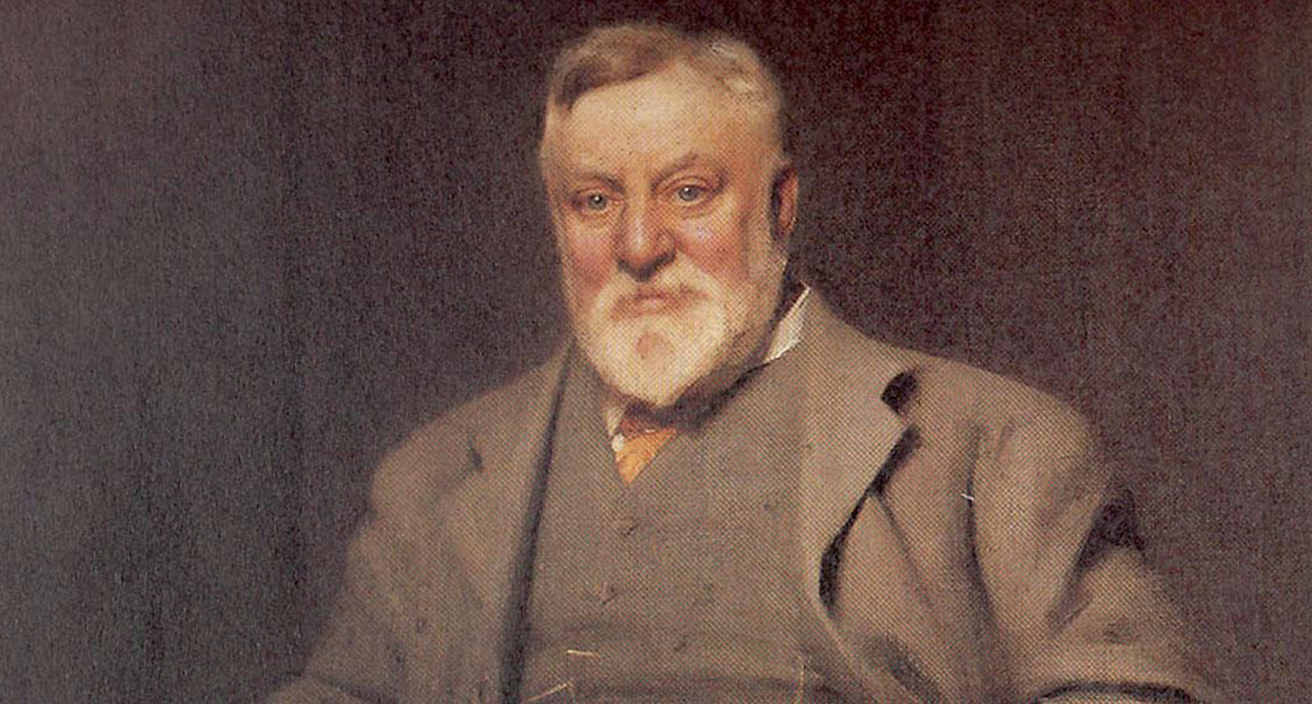

Heritage
When our adventurous founder Arthur Lasenby Liberty laid plans for a London emporium laden with luxuries and fabrics from distant lands, his dream was to metaphorically dock a ship in the city streets. To this day, a voyage of discovery awaits on the good ship Liberty, with history hidden amongst six floors of cutting-edge design, unexpected edits and beautiful wares from the world’s greatest craftspeople.

I was determined not to follow existing fashions but to create new ones.
Arthur Lasenby Liberty
In 1875, Arthur borrowed £2,000 from his future father-in-law and took a building on Regent Street, London with just three dedicated staff and plenty of ambition.
Liberty’s collection of ornaments, fabric and objets d’art from around the world proved irresistible to a society intoxicated at the time by Japan and the East and Liberty effected social change in interior design and dress, so much so that the Art Nouveau period in Italy is called ‘Liberty Style’. Within eighteen months the loan was repaid.
A realisation of Arthur’s original vision, our magnificent Great Marlborough Street shop followed in 1924. Our beautiful building was designed by Edwin T. Hall and his son Edwin S. Hall. In 1922, the builders Messrs Higgs & Hill were given a lump sum of £198,000 to construct it, which they did from the timbers of two ancient ‘three-decker’ battle ships. Records show more than 24,000 cubic feet of ships timbers were used including their decks now being the shop flooring: The HMS Impregnable - built from 3040 100-year-old oaks from the New Forest - and the HMS Hindustan, which measured the length and height of our Liberty building.



Designed to feel like a home, each atrium was surrounded by smaller rooms, complete with fireplaces and furnishings. Ever the purveyor of craftsmanship, Arthur Liberty had a furniture workshop in Archway, London. Run by Lawrence Turner, the workshop produced Liberty Arts and Crafts furniture and the intricately carved panels and pillars found throughout the store.
The 1920s was a time of Tudor revival, considered the most crafted and English of architecture, so the shop was engineered around three atriums. Designed to feel like a home, each atrium was surrounded by smaller rooms, complete with fireplaces and furnishings.
The craftsmen allowed his fantasy, ensuring every ornament was a one-off - paving the way for discovery. Sadly, Arthur died seven years before the building's completion and so never saw his dream realised. But, his statue stands proudly at our Flower Shop entrance to welcome you warmly into his emporium of wonder.
The building is now a heritage-listed London icon and today, Liberty is famed for its directional design, cultural collaborations and inspiring curation. Our dedicated in-house design studio is still at the core of all that we do, hand painting and creating our beautiful prints, and reworking finds from the 45,000-strong archive.